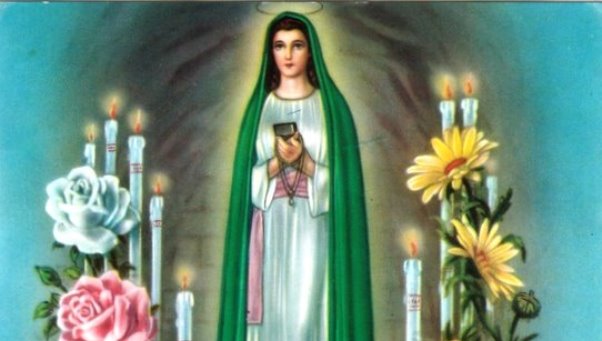The Madonna of the three fountains: the three intentions of Mary

As for Bruno's life, the Madonna is explicit and does not use half words. He defines it: the way of error. Everything is said. Those who are wrong must correct themselves. She goes no further. Bruno understood very well, without her going into details. Maria's speech goes on: the topics touched are many .. It lasts about an hour and twenty minutes. We are not aware of all the content. What the seer has made known to us is the first, usual, inevitable request of the Beautiful Lady: prayer. And as a first prayer, the favorite, is the rosary that you specify "daily". So not every now and then, but every day. This insistence of Mary on prayer is certainly impressive.
You, the co-redemptrix, the mediator, also solicit our work as "co-redemptors" and "mediators" for the whole Church and for the whole world. It makes it clear that "he needs our prayers", because they are foreseen and desired in the divine plan. At the Tre Fontane, in addition to the usual intention for which we must pray, which is the conversion of sinners, Ma donna recalls two more. We hear his words: "Pray and pray the daily rosary for the conversion of sinners, unbelievers and for the unity of Christians". Please pray for unbelievers. It draws attention, since then, to the phenomenon of atheism, which at that time was not as widespread as it is now. She always anticipates the times. If in past years this was an attitude of some, especially of some social or political class, now it seems to have become common, mass.
Even many of those who say they believe have actually reduced their faith to some traditional gestures or, even worse, to superstition. There are many who profess themselves believers but not practitioners. As if faith could be separated from works! Widespread well-being has led many to forget God, to no longer have time for him, drowning in the continuous search for material things. Society and even individuals no longer make any reference to God and are careful not to mention him, on the pretext of not wanting to offend those of another religion ... We want to build everything without God, considered as one we can gladly do unless, also because it often disturbs consciences.
And above all, youth grows without faith in him, and without him we go into trouble. The Mother of Heaven, on the other hand, wants everyone to convert and return to God. And for this, she asks everyone for the help of prayer. To this concern of the common mother is added another, rather new for those times: that of ecumenism, if we can call it that. He asks for prayers to bring about unity among Christians. She too cannot take any more of this laceration between the brothers of the Son and her beloved children. Not even the soldiers under the cross had the courage to tear the beautiful tunic of Christ into pieces. This absurdity must also end because it constitutes scandal and confusion for those who would like to convert to Christ and do not know who to choose. And to that one sheepfold under one shepherd that the Virgin alludes to.
And, paradoxically, as long as this division persists, she herself unwittingly becomes a stumbling block and a reason for misunderstanding. In fact, there are usually two main points that stand in the way of Christian unity: the Madonna and the Pope. Only through prayer will these difficulties be overcome and then both she and the Pope will be recognized in the mission entrusted to them by Jesus himself. As long as this fragmentation remains in the body of Christ, the Kingdom of God cannot come, because this postulates unity.
There is a Father, a Brother, an ordinary Mother. How then can there be division between the children? Truth cannot be torn to pieces, each of which takes only one part. The truth is one and must be accepted and lived entirely. Her Jesus died, and she with him, to "gather all the missing children". How come you persist in this dispersion? And until when? You make us understand that only the power of prayer can mend the "useless" garment of Christ, more than the discussions. Because unity is the fruit of conversion, which puts the Lord in the possibility of overcoming every preconception, every diffidence and every obstinacy.
The fact of appearing to a Protestant and in the city of Rome, the center of Christianity and the seat of the papacy, confirms this intense desire of Mary most holy. We must return to trust her and pray with her, as in the early days of the Church. She is the sure guarantee, the reliable witness of the truth about her Son and the Church. How can you not trust your mother? It is probably not the silence, the reduction or the nuance of the discourse on Mary that facilitates ecumenism: clarity about her person and her mission will lead to union more than the interminable and unnerving dialogues, continuously interrupted and almost always resumed at the same point. And then, what sense can it have to welcome Christ by rejecting his mother? To host his Vicar on whom the Church rests as on the foundations?